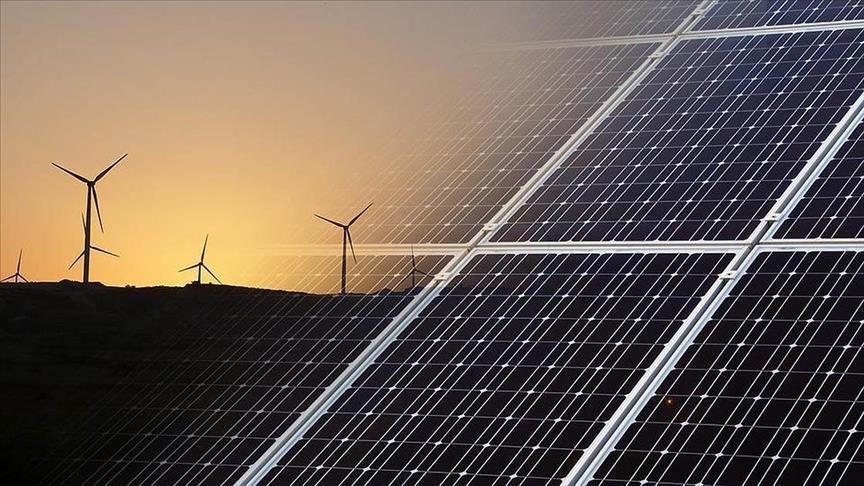The share of coal and natural gas in electricity generated in Europe last year declined as the share of clean generation sources, namely wind and solar, increased with contributions from nuclear and hydroelectric sources.
According to the latest analysis by Columbia University's Center for Global Energy Policy (CGEP), based on data from the European Union of Transmission System Operators for Electricity (ENTSO-E), the decline in nuclear and hydroelectric electricity generation in 2022 led to an increase in natural gas generation and contributed to the escalation of the 'gas crisis' due to Russia-Europe tensions.
Anne-Sophie Corbeau, a global research fellow at Columbia University's School of International and Public Affairs, told Anadolu that increased renewable generation is to be expected given the expansion of both solar and wind capacity.
'This trend is a continuation of what has been observed over the past years. The European Union has very ambitious targets in terms of increasing the use of renewable energy within its primary energy mix, and increasing renewable generation is part of that goal,' she said.
With regard to the extent to which the Russian crisis affected the changing shares of resources for power generation, she said that the impact was marginal, given that “gas-fired generation depends on power demand and generation from other sources.”
It could be argued that power demand has been falling due to increased power prices and incentives to reduce energy demand through energy efficiency and energy savings like the plan to save gas for winter in mid-2022, she said.
'However, I don't think the generation from hydro would have been different; the generation from nuclear would have been slightly lower - since nuclear power plants in Germany were extended to April 2023, generating 6.7 terawatt-hours last year instead of stopping in December 2022. Wind and solar would have probably been slightly lower given the push to accelerate the deployment of solar and wind, but it is very difficult to estimate precisely,' she explained.
Corbeau said efforts to reduce power demand in many countries are continuing but observation over a longer period is needed to see if energy saving habits will sustain should the crisis resolve.
According to the CGEP analysis, the EU's electricity generation fell by 2.3% from 2,457.7 terawatt hours in 2022 to 2,401.3 terawatt hours last year.
The greatest decline was seen in January at 7.2%. However, EU production increased by 2.4% in the last quarter compared to the same period in 2022. The analysis found that the general decline across the EU could be attributed to efficiency and power savings measures last year in response to the energy crisis in 2022.
Estonia, Bulgaria and Belgium were among the countries with significant production declines last year.
On the other hand, Lithuania, Latvia and Croatia were among the countries where production increased.
'These generation changes at a country level could be due to changes in electricity trade as well as a demand reduction at the transmission level. In Germany, power generation dropped by 11%, due to an estimated 3% to 4% drop in consumption and an increase in imports,' the analysis stated.
Hydropower generation in Europe increased by 50.6 terawatt-hours last year compared to the previous year, with all months seeing increases in hydropower generation due to wetter conditions compared to 2022, except for Southern Europe, which had a hot and dry summer. The highest increase in hydropower was seen in Portugal, producing double compared to 2022.
In numerical terms, the highest hydroelectric generation was recorded in Italy and France.
Electricity generation from nuclear power plants also increased by 8.9 terawatt-hours last year compared to the previous year. Germany experienced the biggest decline in electricity generation from nuclear power plants due to the decommissioning of its last three nuclear power plants in April 2023. France, conversely, saw a noteworthy increase in production.
These increases in renewable energy, nuclear and hydropower led to a significant decline in fossil fuel-based electricity generation.
Coal-based electricity generation fell by 120 terawatt-hours and natural gas-based generation by 71.8 terawatt-hours last year compared to the previous year. Experts believe that this led to an improved supply-demand balance in the EU and contributed to stabilizing gas prices last year.
By Murat Temizer
Anadolu Agency
energy@aa.com.tr


